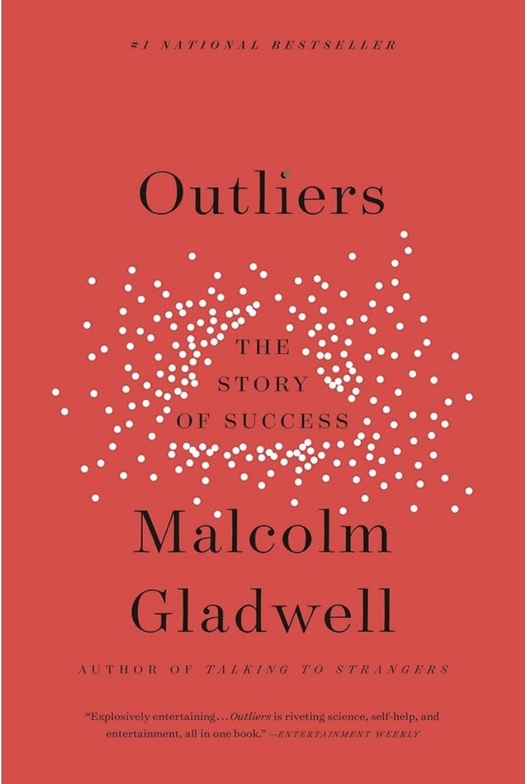
I’m a huge fan of Malcolm Gladwell! I’ve read all of his books and listened to his Revisionist History podcast—(I’m sure that will make its way onto Ignite Insights soon). What I love most about his work is how he weaves together tiny details, surprising statistics, and fascinating findings that make you see the world differently. One of my favorite examples comes from Outliers, where I learned that nearly 60% of NHL players are born in January, February, or March—(Connor McDavid and Wayne Gretzky, both January babies!). Below is a summary of this eye-opening book. Enjoy!
In Outliers: The Story of Success, Malcolm Gladwell invites readers to rethink what it means to be successful. Traditionally, we tend to focus on individual brilliance and hard work as the key ingredients for achievement. However, Gladwell argues that success is far more complex, involving external factors such as culture, upbringing, timing, and even luck. He deconstructs well-known success stories to reveal that no one achieves greatness entirely on their own.
Outliers challenges the myth of the "self-made" individual and emphasizes that our surroundings and opportunities play just as critical a role in shaping who we become. From software titans to professional athletes, Gladwell shows how family background, cultural heritage, and sheer chance often determine who gets ahead. He also highlights the importance of context, revealing how certain societal structures and historical circumstances enable individuals to excel.
By focusing on the hidden influences behind success, Gladwell offers a more holistic understanding of achievement, arguing that while talent and hard work are essential, they aren't enough by themselves. The book is filled with captivating stories and examples that illustrate his ideas, making Outliers an insightful and thought-provoking read for anyone interested in the broader forces that shape human potential.
Key Takeaways from Outliers:
-
The 10,000-Hour Rule: Success in any field is more about practice than raw talent. Gladwell introduces the idea that to achieve mastery, one needs approximately 10,000 hours of deliberate practice, highlighting examples like The Beatles and Bill Gates.
-
Timing Matters: Gladwell explores how being born in a particular era, or even in a specific month of the year, can make a significant difference in one’s chances of success. He cites examples of tech moguls born in the 1950s who capitalized on the personal computing revolution.
-
Cultural Legacy: The book discusses how deeply ingrained cultural traditions and legacies shape behaviors and attitudes. From airline safety to math proficiency, Gladwell illustrates how culture influences the way people respond to challenges and opportunities.
-
The Importance of Opportunity: Many of the "outliers" Gladwell highlights were given unique opportunities that most people never have. Whether it's access to resources or being in the right place at the right time, these chances can be decisive in a person’s success.
-
The Matthew Effect: This concept, borrowed from the Bible, refers to the idea that “the rich get richer.” Gladwell shows how early advantages, like access to better education or training, tend to compound over time, creating a snowball effect that widens the gap between the successful and everyone else.
-
Meaningful Work: Gladwell emphasizes the importance of engaging in work that feels meaningful. Successful people often derive great satisfaction from their work, which helps fuel their motivation and perseverance.
-
Cultural Differences in Communication: One of the more surprising insights in Outliers comes from the aviation industry, where cultural norms around communication played a role in plane crashes. Gladwell shows how deeply embedded societal behaviors can affect outcomes, even in high-stakes situations.
-
Perseverance and Grit: While luck and opportunity matter, Gladwell reminds us that perseverance and grit are still essential. Those who make the most of their opportunities are often the ones who push through failure and setbacks.
In Outliers, Malcolm Gladwell masterfully illustrates that success is not just about individual effort. It's a complex web of factors that include our environment, timing, and even the culture we grow up in. This book provides a fresh perspective on achievement and will make you rethink the traditional stories of how people rise to the top.

Jill Saban
Contact Me



